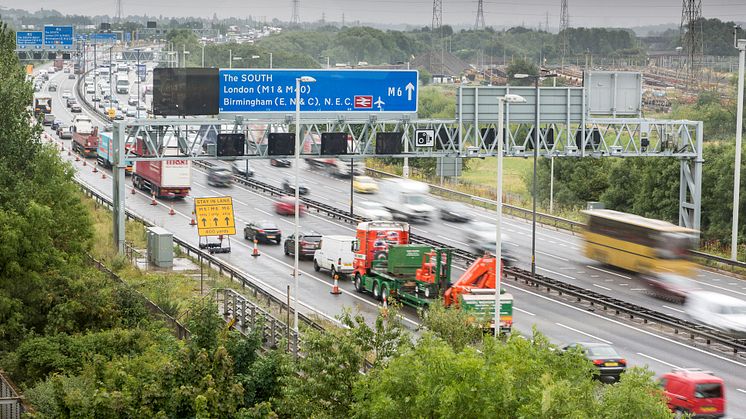
News -
RAC comments on new report about disruption on motorways and A roads
A new report has found motorists faced 3,700 jams a day as a result of disruption on motorways and A roads between September 2016 and August 2017.
RAC roads policy spokesman Nick Lyes said: “Congestion is a major cause of frustration for motorists and delays undoubtedly have a significant negative impact on the UK’s economy.
“We now have record numbers of vehicles and a road network that struggles to cope with the increased volume of traffic. This is very clearly demonstrated on a daily basis with congestion at key pinch-points around the country.
“Sadly, the fragility of the road network is exposed whenever there is a major incident on a motorway. The fall-out effect of motorists seeking alternative routes causes serious traffic jams in surrounding areas, often bringing gridlock to towns and cities as a result.
“While clearing the aftermath of a major motorway accident is understandably time-consuming more needs to be done by all the agencies involved to speed up reopening and to improve diversion routes.
“RAC research has found that 56% of motorists believe congestion on the UK’s major roads, which are responsible for carrying two-thirds of all traffic, has increased. This is very worrying finding as motorways, high-speed dual carriageways and A-roads only make up 13% of the UK’s road network by length. In addition, 61% of drivers surveyed said congestion and journey times on motorways had worsened in the last year.
The Government’s Road Investment Strategy is starting to add capacity on motorways, but the associated roadworks inevitably cause short-term traffic pain ahead of the longer-term gain from the creation of smart motorways where traffic flow is controlled by variable speed limits.
“In urban areas, authorities should look at congestion holistically and consider all measures available to them to improve traffic flow such as better traffic light sequencing and incentivising utility companies to carry out roadworks more quickly, something which the Government is currently consulting on.
“Drivers can also reduce the impact of being caught in congestion by planning journeys before they get in their vehicles.”


